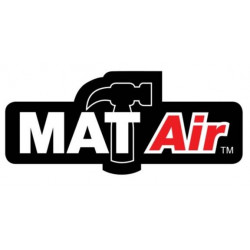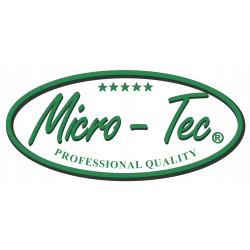
COMPOUNDING SPONGE 150MM X M14 WHITE HARD FOAM PAD
R 142.00
Ex Tax: R 123.48
| Quantity | Unit Price | You Save |
|---|---|---|
| 3 or more | R 139.72 | 1.61 % |
| 6 or more | R 136.57 | 3.83 % |
| 12 or more | R 133.94 | 5.67 % |
- Stock: 2768
- Model: TCCS15014-4
- Weight: 0.06kg
- Dimensions: 162.00mm x 210.00mm x 210.00mm
- SKU: TCCS15014-4
- UPC: 6009515828387
For 20 or more items, click to quote
Compounding sponge

Pattern: Standard
Density: Firm
Colour: White
Diameter: Ø150mm
Thread/Hook & Loop: M14
Application:
The compounding sponge should be used with an automotive polisher.
It is necessary to polish a vehicle body panel when:
- The panel has been newly painted with a clear-coat.
- Shallow scratch marks need to be removed.
- The panel has suffered from oxidation.
- Swirl marks and hologram defects need to be removed.
Compounding sponge uses:
| COLOUR | POLISH | COMPOUND |
| White | Good | Best |
| Orange | Good | Best |
| Red | Best | |
| Black | Best |
Compounding sponge range:
| ORDER NO. | DENSITY | COLOUR | DIAMETER | THREAD | PATTERN |
| SPC00101 | Firm | Orange | ø200mm | Hook & Loop | Standard |
| SPC00100 | Soft | Yellow | ø200mm | Hook & Loop | Standard |
| SPC00102 | Soft | Red | ø200mm | Hook & Loop | Standard |
| TCCS15058 | Firm | White | ø150mm | 5/8 UNC | Standard |
| TCCS15014-1 | Firm | White | ø150mm | M14 | Standard |
| TCCS15014-4 | Firm | White | ø150mm | M14 | Standard |
| TCCS15014 | Firm | Orange | ø150mm | M14 | Standard |
| TCC15014-2 | Soft | Red | ø150mm | M14 | Standard |
| TCCS15014-3 | Soft | Black | ø150mm | M14 | Standard |
| TCCS15014-5 | Soft | Black | ø150mm | M14 | Waffle |
| SPC00124 | Firm | Blue | ø125mm | Hook & Loop | Standard |
NOTE:
For the ø200mm Hook & Loop compounding sponges, use the M14 backing pad
SPC00106.
Adaptors to convert or lenghten the polisher's thread:
| ORDER NO./td> | MALE THREAD | FEMALE THREAD |
| SPC00055 | 5/8 UNC | 5/8 UNC |
| SPC00053 | 5/8 UNC | M14 |
| SPC00054 | M14 | 5/8 UNC |
| SPC00052 | M14 | M14 |
Compounding sponge
Steps to take when polishing a panel:
1. Preparing the panel:
- Sometimes a panel has fine over-spray left from spraying the clear-coat. This needs to be removed by lightly sanding with a fine abrasive paper. All over-spray need to be sanded out up to P1500 grit.
- The panel should be washed when all spray-finishing defects have been removed. Any dirt particles could cause scratch marks when polishing.
- Tight curves and ends of the panel should be masked-off to prevent the effects caused by point pressure. The polisher should always be used on flat surfaces.
2. Applying the polishing compound:
- A five rand coin amount of polishing compound should be applied to the sponge. Switch the polisher to it's lowest speed setting.
- Switch on the polisher and gradually spread the polishing compound over the panel.
- Keep moving the polisher on the panel to have as little amount of pressure and friction.
- The polishing compound will remove the scratch marks caused by the P1500 sand paper and it will bring out an impressive gloss finish.
- Remove the masking from the panels and apply the polishing compound to a microfiber cloth. Hand polish (by moving your hand in a small circular motion) the tight curves and ends in the panels until the same finish is achieved as from the polisher.
3. Wash the panel when finished:
- Wash the panel after polishing to remove any residue from the polishing compound.
| consider safety for your health and the people around you | |||
General safety suggestions:It is advisable to always have the following items nearby and in a good condition
|
|||
|
|
|
|
|
|
Wear Gloves
|
Eye Protection
|
Hearing Protection
|
Dust Mask
|

















































































